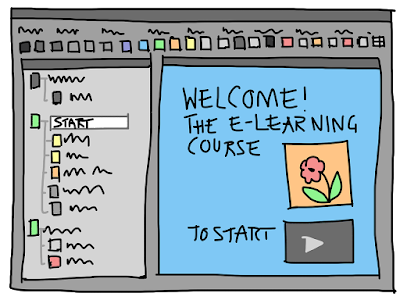
Educators have a responsibility to share their knowledge and resources beyond their immediate classrooms. Whether through published lesson plans, instructional materials, or even demonstrations of educational accessories, educators should contribute to the wider educational community.
When developing a Learning Management System (LMS) or Learning Content Management System (LCMS), four key goals should guide the process: user experience, product adoption, monetization, and growth potential. Achieving all four requires consistent effort and adaptation.
Here's a breakdown of key considerations for developing effective LMS/LCMS products:
-
Mobile-First Approach: Mobile platforms are essential for engaging modern learners. LMS platforms like Moodle and Canvas, which embrace mobile architecture, effectively reach students on smartphones, tablets, and similar devices. Mobile apps excel at creating engaging user experiences. An LMS/LCMS mobile app should prioritize a minimal learning curve and intuitive navigation. Offering both offline and online interactive content, perhaps even incorporating elements of Augmented Reality (AR) like Pokémon Go (adapting the game's core concept, not replicating it entirely), can significantly enhance user experience and drive adoption. While AR is not suitable for all lessons, creative integration can greatly increase user engagement and create monetization opportunities.
-
Blending Real and Augmented Worlds: Effective modern education should bridge the gap between real-world experiences and digital learning. LMS platforms that integrate with real-life environments create more engaging learning experiences. Emerging technologies like AR and the Internet of Things (IoT) offer exciting possibilities, such as virtual tours of atoms, zoos, or the human body. A balanced approach combining 50% offline and 50% online learning allows both teachers and students to benefit from the advantages of each. Online and offline learning should be complementary, with each picking up where the other leaves off, rather than competing.
-
Enhancing the Learner's Experience: The ultimate goal for educational entrepreneurs (Edupreneurs) is to drive demand for their products and services. This involves creating valuable, relevant, and practical learning experiences that improve student performance. The process of creating effective online learning content involves:
- Developing a curriculum.
- Creating diverse lesson variations.
- Designing both online and offline activities.
- Sharing these resources and experiences with other educators in a way that is easily adaptable to different teaching styles and lesson plans.
By focusing on these principles, educators and EdTech developers can create more effective and engaging learning experiences that benefit both students and teachers.
Comments
Post a Comment